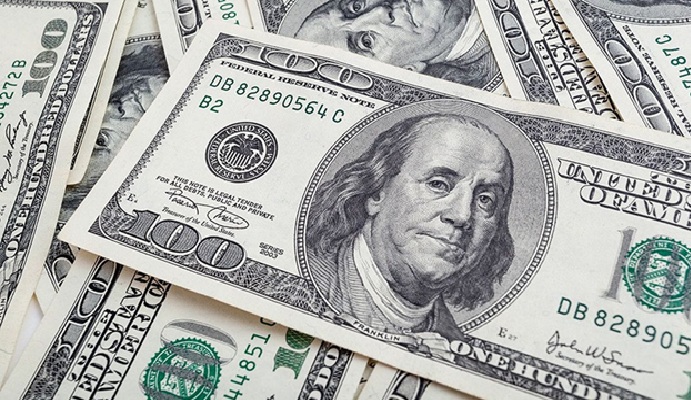
Afrasianet - Amid these profound shifts, the dollar is reeling from these profound shifts, and investors and policymakers must treat the crisis as a realistic possibility, not just as an economic theory.
The American newspaper "The Hill" publishes a report discussing the decline in the position of the US dollar as a global reserve currency in light of recent economic and political developments, and raises questions about the future of the global financial system.
The text of the report is quoted in Arabic:
Conventional economic theory has long suggested that US import tariffs automatically lead to a rise in the value of the US dollar, driven by lower demand for foreign exchange and expectations of monetary tightening. But recent markets are turning these assumptions upside down and raising fundamental questions about the future of the dollar as a global reserve currency.
Dr. Vivikanand Jayakumar, associate professor of economics at the University of Tampa, asserts that the current crisis is no longer just an academic hypothesis, but a concrete reality that threatens the dollar's position in the global financial system.
Jayakumar explains that tariffs, according to the traditional view, reduce the volume of imports by raising their cost, which reduces the demand for foreign currency needed to pay for those goods, and leads to support the dollar. These tariffs also raise domestic prices, raising inflation expectations, thus pushing the Federal Reserve to adopt a tighter monetary policy compared to other central banks, which strengthens the value of the US currency.
Moreover, it is assumed that the dollar, as a "safe-haven currency," benefits during periods of uncertainty from investment flows into US Treasuries, which are among the safest assets. But reality defied all these expectations.
Since its last peak in January, the US dollar index (DXY) has fallen to a three-year low, despite rising geopolitical tensions and economic risks. Although President Donald Trump's trade policies have created chaos and caused fears of a global trade war, the US dollar has lost much of its appeal as a safe-haven currency.
"For the first time in recent history, investors have begun to question the traditional role of the dollar and U.S. Treasuries as pillars of financial stability, as a result of the administration's volatile and unpredictable policies, along with threats to the independence of economic institutions," Jayakumar said in an article published in The Hill.
The narrative of "American exceptionalism" and growth driven by tax cuts has receded to be replaced by a genuine concern about economic stagnation, and perhaps even "stagflation," a deadly combination of slow growth and high inflation that dampens investors' appetite for US assets.
The U.S. Treasury data highlights the challenging: In 2024, interest payments on public debt ($949 billion) exceeded defense spending ($826 billion), a sign of mounting fiscal pressures. As talk of financial repression increases, attention is turning to the extent to which the current administration can adjust policies without damaging the attractiveness of Treasury bonds.
Under these circumstances, the gap between US bond yields and European bonds, such as Germany's Bonds, widened, while the euro and Japanese yen posted gains against the dollar, reflecting a shift in investor behavior. Gold prices rose unprecedentedly, exceeding $3,500 an ounce, in a sign of rising global concern about the dollar's loss of standing.
Are we facing a temporary crisis? Or the beginning of a structural transformation in the global financial system?
Jayakumar points out that the dollar usually goes through ups and downs that last for years, and this could be the beginning of a new long downturn, driven by structural changes in the international monetary system.
Despite the advantages of the dollar network and institutional dominance, Jayakumar points out that "economic research shows that the dollar was not immune in the past, as its replacement by the pound sterling as a reserve currency occurred earlier than thought, due to the deepening of US markets in the twenties and thirties of the last century."
Jayakumar warns that Europe's expansion of euro-denominated consolidated bonds, coupled with China's liberalization of the capital account and strengthening its financial opening-up, could accelerate the global financial system's transition from a unipolar to a multipolar model. The efforts of the BRICS and other emerging economies are also aimed at breaking overdependence on the dollar in an effort to break free from its dominance of the global financial system.
Concluding his analysis, Jayakumar stresses that maintaining the dollar's position as the dominant currency requires decisive action, saying: "Instead of deepening alliances and ensuring the stability of the financial system, the Trump administration is playing a dangerous game that may precipitate the collapse of confidence in the dollar."
As the dollar teeters amid these profound shifts, investors and policymakers have to treat the crisis as a realistic possibility, not just an economic theory.

